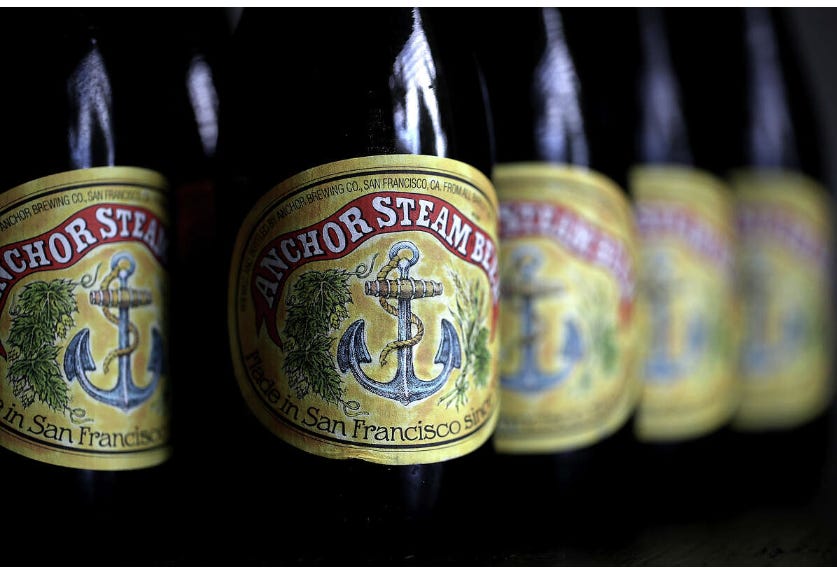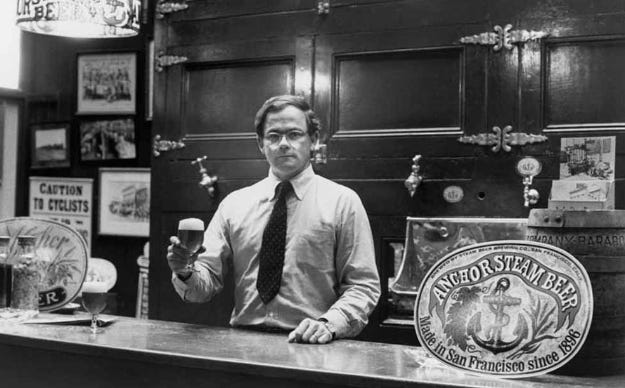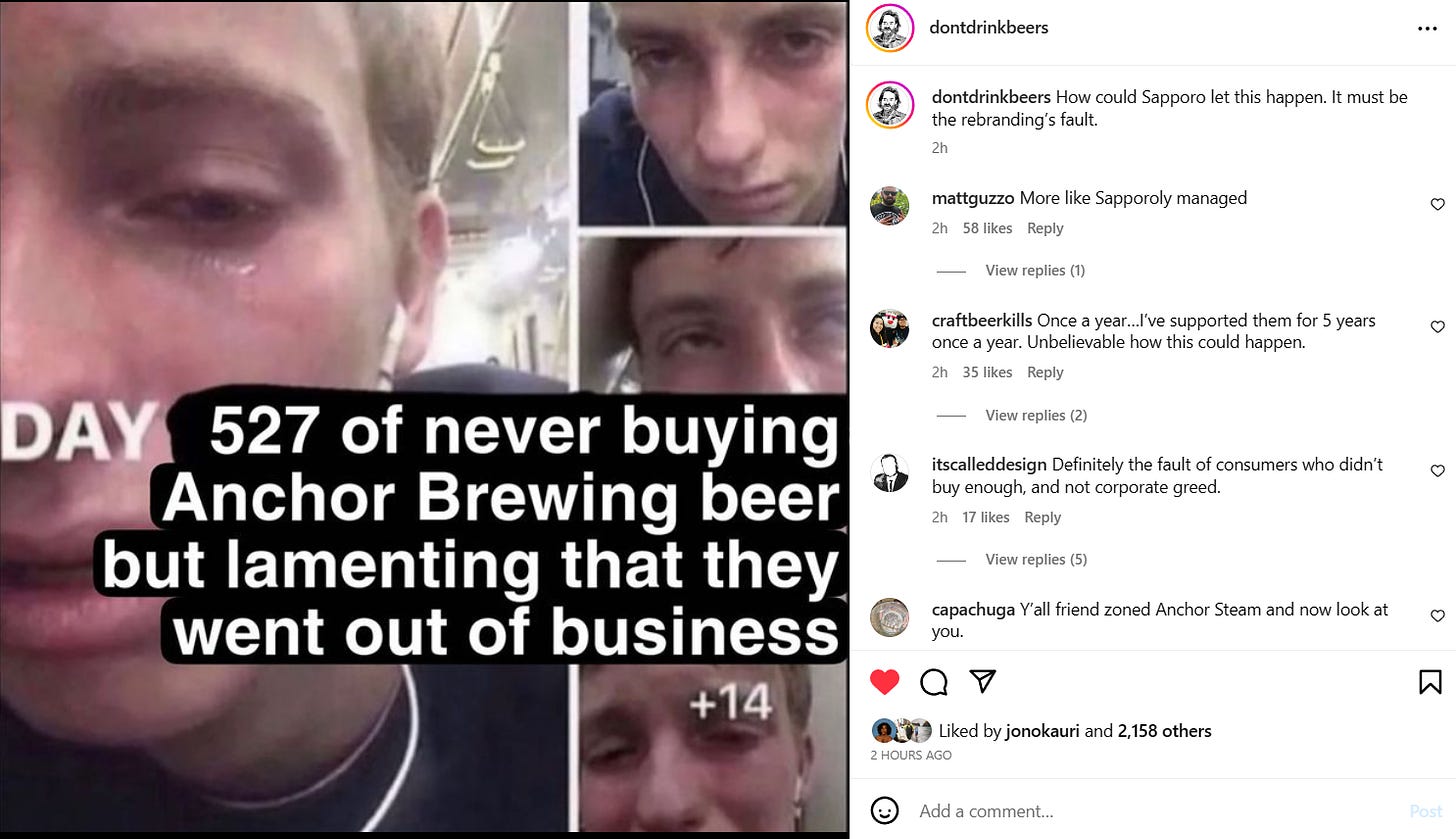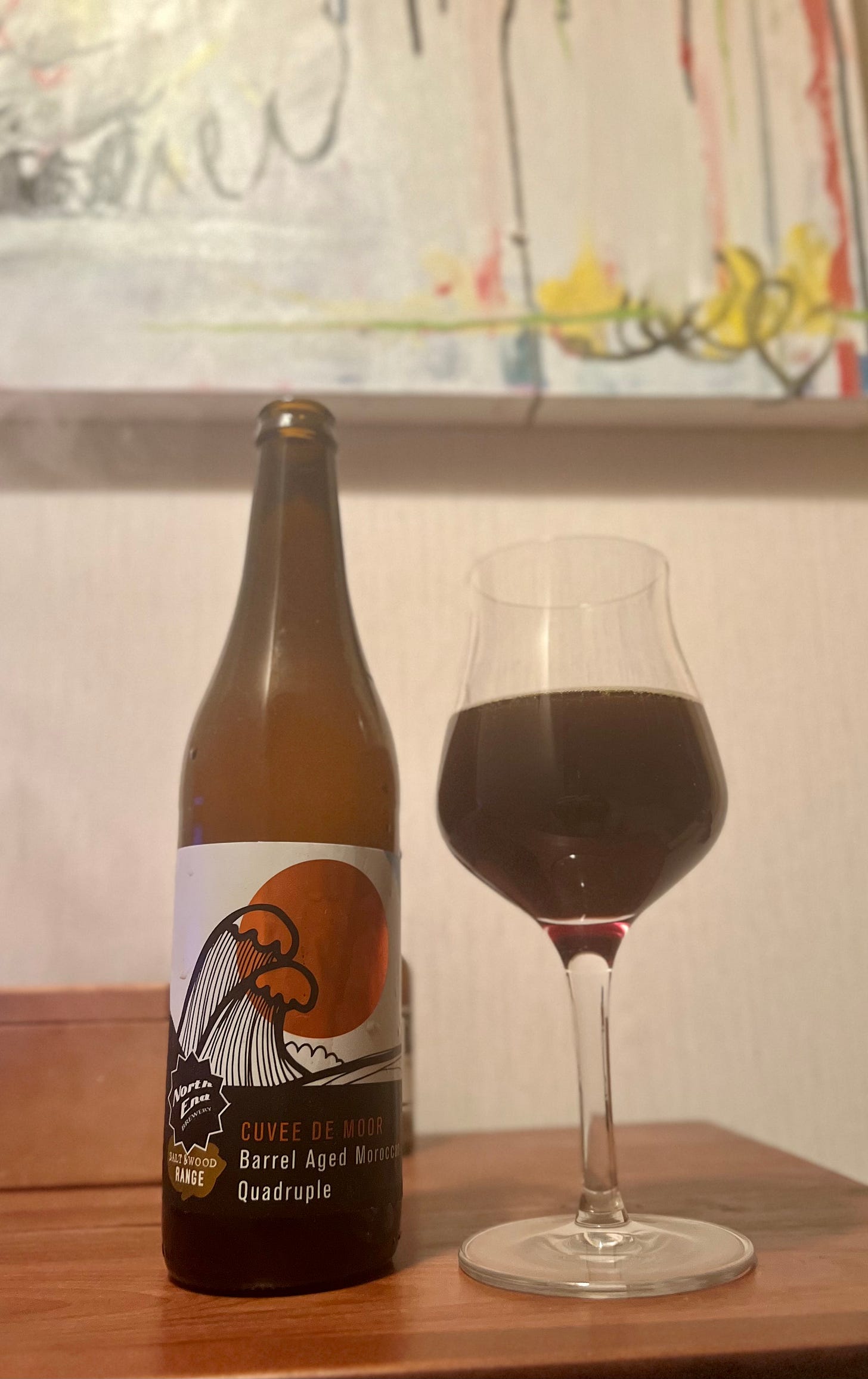American beer legend killed off by Sapporo
A call to arms — support what you've got or lose it. Carl Hayman's home brewing adventures. Zero alcohol investment ramps up in Europe. How craft beer changed Thai politics.
Holy, fricking, Moly … things feel like they are going to hell in a six-pack for the brewing industry in America, with the announcement yesterday that the oldest craft brewery in the country is to close.
Anchor Brewing will cease operations and the business will be liquidated, the company’s public relations firm announced.
San Francisco-based Anchor, which was bought for $85 million by Sapporo in August 2017, cited “a combination of challenging economic factors and declining sales since 2016.” Ultimately, the company said the economic pressure “made the business no longer sustainable.”
The only parallel to Anchor here would be Mac’s, except that it was sold to a global giant many years before the craft boom, which is now starting to feel like a bust. But Mac’s doesn’t have its own brewery like Anchor has. Nor the cultural cachet. Emerson’s might be a better comparison. If Lion ever decided to shut Emerson’s, you’d know how bad this is for America.
Workers at Anchor were given 60 days’ notice and while production has ceased at the brewery, packaging and distribution of the remaining beer will continue until the end of July. Anchor’s Public Taps taproom will remain open to sell through remaining inventory, including a small batch of 2023 Anchor Christmas Ale that was brewed prior to the decision to cancel the ale’s national release.
“Repeated efforts” to sell the business fell short over the last year, said the release. A buyer could potentially emerge as part of the liquidation process. However, the company is entering a process in which an assignee will liquidate the business’ assets to pay off creditors as part of a California Assignment for the Benefit of Creditors, which is an alternative to filing Chapter 7 or 11 bankruptcy.
The news follows Anchor pulling back its national distribution to just California and cutting production of Christmas Ale, the 49th release of the seasonal offering. Those cost-cutting measures were part of what the company termed “final attempts … to evaluate all possible outcomes” but “expenses simply continued to outstrip revenues, leaving the company with no other viable choice.”
Production under Sapporo’s leadership declined every other year with the exception of 2021, when volume increased +45%, to 72,500 barrels, its highest point since the 89,612 barrels produced in 2018, according to the Brewers Association’s New Brewer Magazine.
Brewbound previously reported that Anchor employees were uncertain about their fate since parent company Sapporo reached a deal to acquire Stone Brewing in June 2022, citing a “lack of transparency” in Sapporo’s plans with Stone and how it affects Anchor.”
Anchor was established in 1896, and was revived into a proto-craft brewery in 1965 under Fritz Maytag’s ownership, and Steam Beer was established as an iconic craft brand.
I’m still gobsmacked. Wow.
As an aside, Anchor Brewing is the latest San Francisco company to close its doors in the city, and comes as a group of San Fran tech companies — including Alphabet, Salesforce and Apple — conduct major rounds of layoffs. Companies that have left San Francisco include Old Navy, Nordstrom, T-Mobile, Saks Off 5th and Office Depot.
Keep craft alive, support local
Before that Anchor news broke, I was writing a Matariki-inspired rejoinder to last week’s missive about the approaching storm. I had a bit of feedback about how grim it seemed so thought I’d try for a more positive spin.
Matariki appeals as a time to bring a sense of renewal, to reflect on what we’ve had, appreciate what we’ve got, and plan for what we want.
If you’re reading this, chances are you like good beer. And it’s where you choose to spend your discretionary dollar that will determine what our brewing industry will look like, post-pandemic, post-inflation, post-CO2 crisis …
Here in New Zealand, our relatively small beer economy means independent, boutique breweries are not making millionaires of their owners (with the exception of the handful that caught the buyout wave of 2012-15 era).
It may sound cliched but I truly believe what our smaller brewers make is driven by a love of beer, a love of flavour, a love of hospitality, and a desire to make people happy. The prospect of any great financial gain is, for the vast majority, not a factor.
Supporting local brewers will keep our beer culture rich and nuanced (yes, there are more than just hazies out there!). If we don’t support them, and they fail, then it’s our choices that will diminish.
Curiously, I had just written this passage, earlier in the week and before the Anchor thing, when a link popped up from Jeff Alworth’s Beervana Blog about how Independence Day in America should be about celebrating independent breweries.
Of course, there’s nothing wrong with large breweries. Some folks take a moralistic approach to brewery ownership and judge multinational beverage companies harshly. (There are even entire organizations devoted to this project.) People have been complaining about the threat of big breweries for a thousand years. Instead of complaints, however, let’s … celebrate the independent folks, those makers of the weird, wild, and wonderful. Freed from the pressure to appeal to millions of customers, they can let their own personalities shine. And that, far more than any discussion of ownership structures, is why we celebrate these breweries.
Couldn’t have said it much better, which is why I cut and paste it!
You can read more of Jeff’s wisdom on the subject here.
Beer of the Week No 1
I opened this on Thursday, with today being a holiday I figured why not have a 13.3% Belgian-style quadruple inspired by Morocco on a weeknight! What. A. Beer. The flavour profile is somewhere in the middle of Coca-Cola, pomegranate juice, pinot noir and Christmas pudding. The texture is quite light and smooth, the acidity pin-point married to the sweetness. It’s got depth, character and memorability. I loved it to bits. Not sure what vintage this was as the little sticker got rubbed off the back but I think 2021. It’s about $23 a bottle but honestly, worth every penny of that.
Big news for Clayton Hops
Keep reading with a 7-day free trial
Subscribe to Friday Night Beers to keep reading this post and get 7 days of free access to the full post archives.








